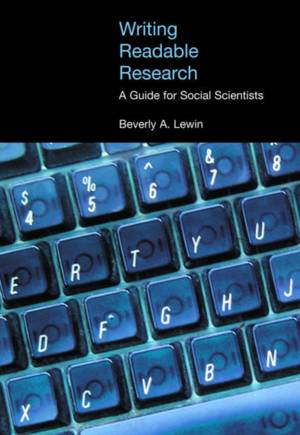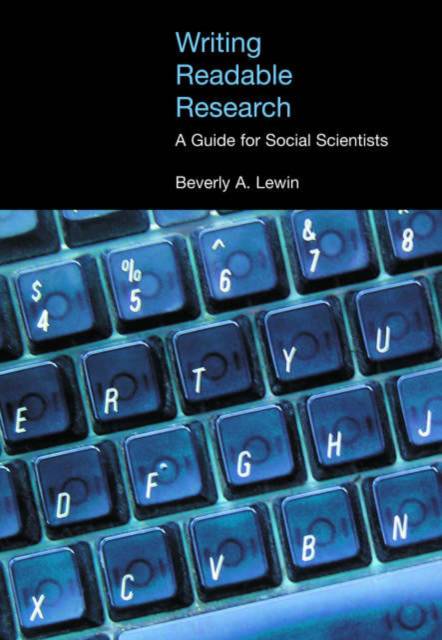
- Retrait gratuit dans votre magasin Club
- 7.000.000 titres dans notre catalogue
- Payer en toute sécurité
- Toujours un magasin près de chez vous
- Retrait gratuit dans votre magasin Club
- 7.000.0000 titres dans notre catalogue
- Payer en toute sécurité
- Toujours un magasin près de chez vous
Description
Writing Readable Research analyses scientific writing in English for non-native and native speakers. The Introduction looks at different layers of constraints in scientific writing in English including grammatical and semantic rules, register, style, rhetoric, textual cohesion, social amenities, mode, field and genre. Section I covers the grammatical and sentential structures relevant to scientific genres and those that pose problems for non-native speakers. It explains the function of the relevant tenses, of voice, and conditional clauses and how grammatical and syntactic facets interact with rhetorical choices. Section II looks at problems common to novice writers, whether non-native or native English speakers, including neglect of the paragraph as an organizing unit, superfluous words and phrases, monotonous sentence structure and inappropriateness for the intended readership. Many writers who have been taught academic English still find themselves unable to cope with scientific English and the final section of the book discusses how to analyze various scientific genres, such as journal articles, oral presentations, abstracts, professional letters and grant proposals. This section also covers the usually neglected area of interpersonal relations in the scientific discourse community. How do we handle sensitive issues such as criticizing other researchers and advancing one's own claims? Praise for this Volume: 'A welcome addition to the array of academically inclined instructional manuals on how to create reader-friendly scientific texts. The author is an expert in the field of teaching scientific writing in the discipline of the Social Sciences and offers a compact volume with plenty of useful advice to students and guidance to tutors of scientific writing. The most attractive feature of the book is its balanced mix of explanations, theory and task-based approach with a strong emphasis on skills building through activities, which are all based on authentic materials showcasing some similarities but also many differences between disciplines under the Social Sciences umbrella.' -- Linguist List 24.396, January 2013
Spécifications
Parties prenantes
- Auteur(s) :
- Editeur:
Contenu
- Nombre de pages :
- 206
- Langue:
- Anglais
- Collection :
Caractéristiques
- EAN:
- 9781904768562
- Date de parution :
- 01-09-10
- Format:
- Livre broché
- Format numérique:
- Trade paperback (VS)
- Dimensions :
- 170 mm x 244 mm
- Poids :
- 340 g

Les avis
Nous publions uniquement les avis qui respectent les conditions requises. Consultez nos conditions pour les avis.






